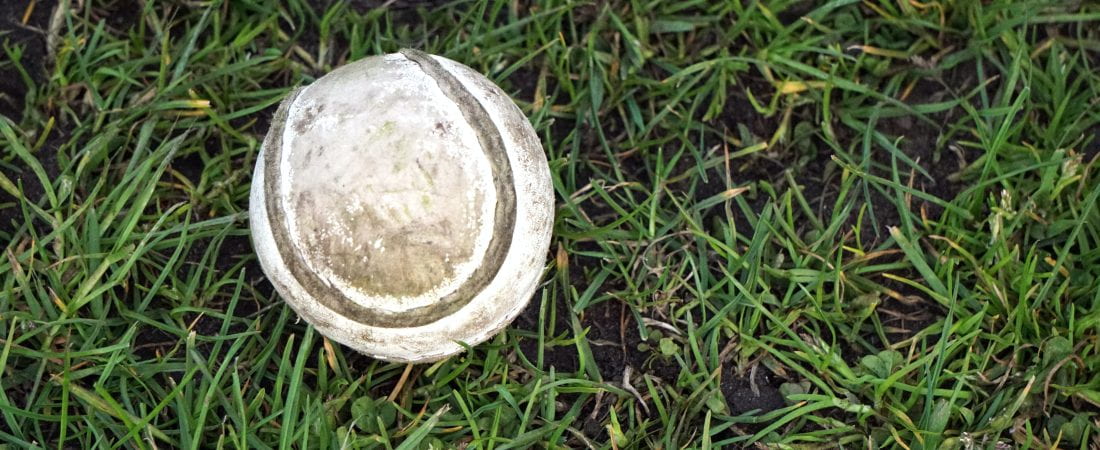New Psychology Research on Gaelic Games

Researchers in the School of Sport and Exercise Science at the University of Lincoln have been collaborating with colleagues in Ireland to advance knowledge and understanding of sport psychology in Gaelic Games. The research, led by Dr Trish Jackman and Dr Matthew Bird, consisted of two studies and resulted in the development of recommendations for policy and practice in Gaelic Games.
Background
Gaelic games are traditional Irish sports played in 2000+ clubs in Ireland and over 450 clubs around the world. The Gaelic Athletic Association (GAA), Ireland’s largest sporting organisation, governs the sports of men’s hurling and Gaelic football, as well as handball and rounders, whereas camogie (i.e., women’s equivalent of men’s hurling) and ladies Gaelic football are governed by the Camogie Association and the Ladies Gaelic Football Association, respectively. Together, these national governing bodies generate annual revenue of over €100 million and the senior All-Ireland finals, the pinnacle competitions in Gaelic games, can attract attendances in excess of 82,300 spectators.
The Gaelic games player pathway outlines three player development phases: foundation; talent; and elite/high performance. The focus of the foundation stage is to promote participation at club level and to nurture an active lifestyle and lifelong commitment to Gaelic games. The talent and elite/high performance pathways aim to help players reach their playing potential and achieve excellence at inter-county level. In 2020, the Gaelic Games Sport Science Working Group (GGSSWG) was established to support the delivery of sport science across all stages of the player pathway. The GGSSWG has since produced a framework for sports science in Gaelic games (Lane et al., 2023). Research undertaken at the University of Lincoln focused on the discipline of sport psychology.
The Research Projects and Recommendations
The first article, published in the International Journal of Sport and Exercise Psychology, was the first review of scientific literature specifically focused on psychology in Gaelic games. Based on findings drawn together from 42 studies and over 4900 participants, several suggestions were made to enhance research, policy and practice within Gaelic games in future. These included that researchers should:
- Conduct more equitable, diverse, and inclusive research in Gaelic games;
- Align research with the player development pathway;
- Widen research to consider the range of people involved (e.g., parents, volunteers);
- Advance research conceptually and methodologically;
- Be more ambitious in relation to mental health research.
In addition, suggested recommendations for policy and practice included the following:
- Coach education and support for female coaches can be enhanced by considering findings from the review;
- Clear guidelines and education are needed for mental health support;
- Efforts to prevent and reduce player burnout should go beyond the individual and consider the structure and culture of Gaelic games;
- People within Gaelic games should be aware of the potential downsides of developing an identity rooted deeply in the sport and having a single-minded focus on sport performance;
- Support for injured players should be interdisciplinary and consider the psychological effects of injury.

The second article, published in The Sport Psychologist, presented findings from two studies. The first study used an online survey method to profile the field of practitioners providing support for mental aspects of performance in Gaelic games, the services they provide, and their views on sport psychology support provision in Gaelic games. In the second study, the authors interviewed sport psychology practitioners about their experiences of delivering services in Gaelic games. Based on the findings, there were several recommendations for policy, including that it would be beneficial to:
- Improve regulation of psychological support and professional standards;
- Enhance knowledge about the sport psychology profession in Gaelic games;
- Clarify mental health support at all levels;
- Address gender inequalities in support provision.
For practitioners, recommendations focused on the need to:
- Clarify the role of a sport psychology practitioner;
- Develop knowledge about the context one is practicing in;
- Place emphasis on building relationships, buy in, and adapting services to context.
The researchers produced summary reports of these studies and the associated recommendations for policy and practice, which are available to download below.
Research Summary and Recommendations for Research, Policy and Practice from the Scoping Review of Research on Psychology in Gaelic Games
Research Summary and Recommendations for Policy and Practice from the Study on Applied Sport Psychology in Gaelic Games
More Information
References for Publications
Jackman, P. C., Lane, A., Wells, N., Kirby, K., & Bird, M. D. (2023). The psychology of Gaelic games: A co-produced scoping review to inform research, policy, and practice. International Journal of Sport and Exercise Psychology. Ahead of Print. https://doi.org/10.1080/1612197X.2023.2257214
Jackman, P. C., Lane, A., Tod, D., & Bird, M. D. (2023). “I realised it was a different kind of culture to other sports”: An exploration of sport psychology service provision and delivery in Gaelic games. The Sport Psychologist. Ahead of Print. https://doi.org/10.1123/tsp.2023-0074
